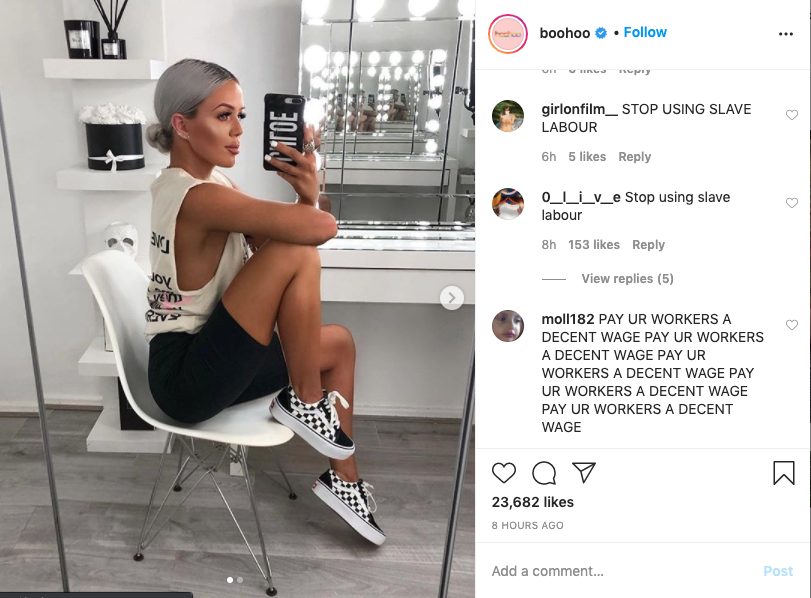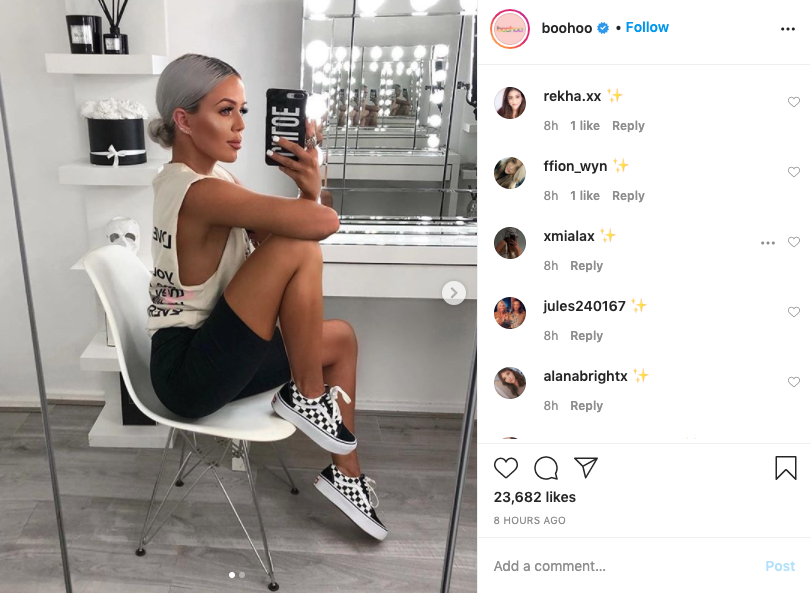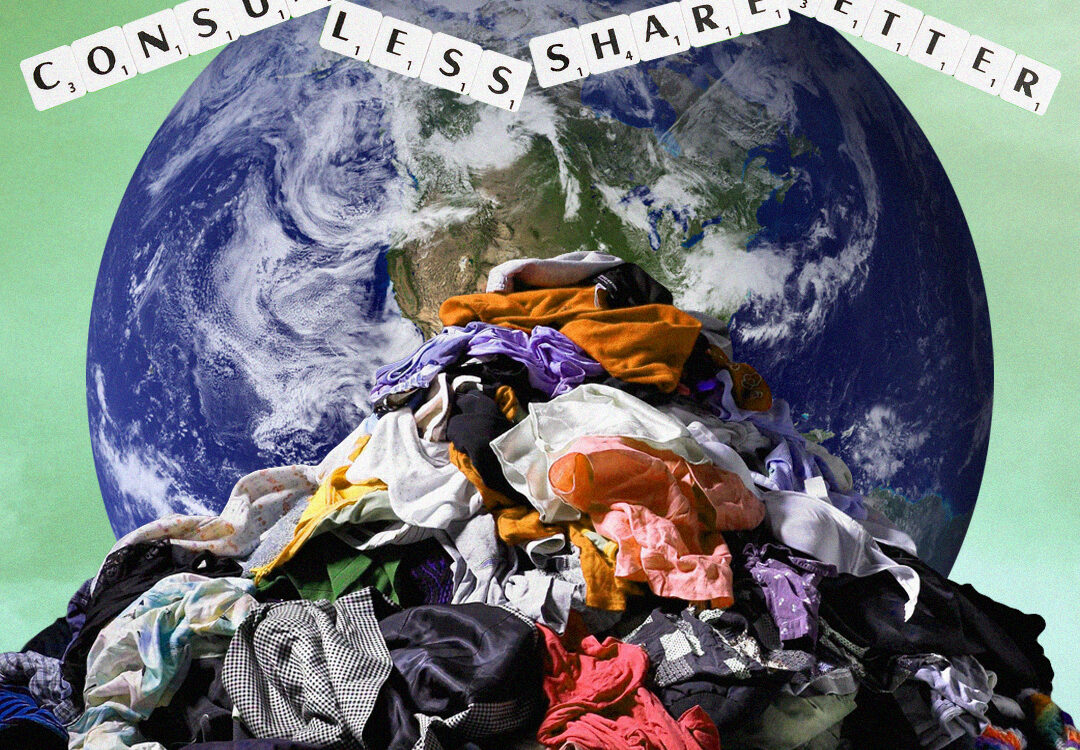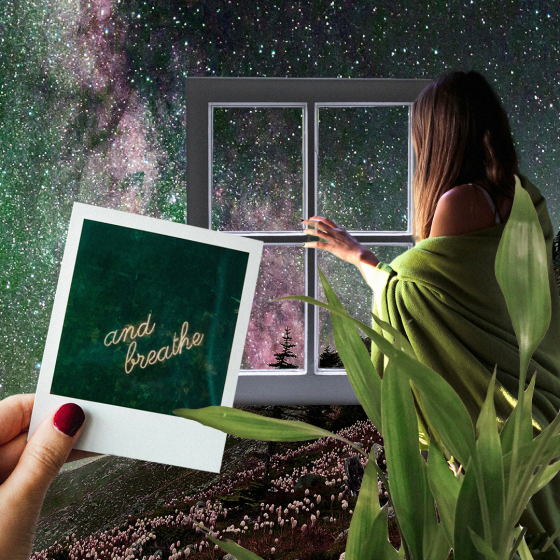Virginia Woolf loved clothes as much as I do. “Vain trifles as they seem, clothes…change our view of the world and the world’s view of us,” she wrote. She coined the phrase “frock consciousness” in January 1925. And though she adored dressing up, shopping often caused the author anxiety; “I hate being badly dressed; but I hate buying clothes,” she wrote. And now there’s extra levels to cause us stress…
Back in April, I quit fast fashion, publicly. In fact, I wrote an entire article about how I came to this decision. I wanted to hold myself accountable. I want to use my tiny piece of influence on the internet to make a change, even if it’s just a tiny ripple.
I outed myself online, so I couldn’t go back to my toxic ways.
You see, I have an addictive personality, which is why I always find quitting anything difficult once I’ve started…Over the course of my 37 years on the planet, there’s been caffeine, cigarettes, calorie counting, alcohol, running, Diet Coke…
Oh god, I can still hear that click of the can pulsating in my ears. But, that fizz is just like the feeling of buying a cheap item of clothing – the high is short-lived. I haven’t had a can of Diet Coke for seven years since I found out aspartame was like poison running through your veins – and every time I buy a piece of clothing online now I must consider the noxious harm that could cause to someone else. If I buy something, it has a ripple effect, and I must rewire my addictive brain into a steely resolve not to buy from these companies that cause harm.
I need to make those bad memories stick, not flit away when it isn’t being talked about in the press and the outrage from our Instagram feeds has disappeared.
What triggered me to quit was the fact that I could no longer ignore how certain brands reacted to the pandemic. Plus of course, fashion is one of the most wasteful and polluting industries in the world.
I am talking about the unsafe working conditions at Asos that caused 500 of their employees at its Yorkshire warehouse to stage a walkout in March. The numerous high street brands fronted by billionaires that refused to pay for orders already in transit from Bangladesh (looking at you, Primark, Matalan, Topshop). And then there was that damning undercover report by The Sunday Times that unearthed workers in Leicester making clothes for Boohoo are being paid £3.50 per hour – these wages are illegal (minimum wage for age 25+ in the UK is £8.72). In fact, less than two per cent of clothing workers globally earn a fair living wage.
Like the rest of the country, and apparently everyone I follow on social media, I was outraged and it galvanised my decision to stop buying fast fashion. So the next day, I even slid into Boohoo’s DMs. They had launched a competition that appeared to be trying to make the claims disappear in a tsunami of emojis. Row after row of stars drowning out the comments from people asking them to #payup. A few days later, a defiant apology – they knew ‘nothing’ about the slavery that so brazenly existed within their own business.


I called them out on their tactic. They replied with a link that didn’t work – they didn’t care. The bio on their careers section of their website says it all really: ‘Our philosophy is pretty simple, we don’t take fashion or life too seriously’. Ain’t that the truth?
I still feel that itch though
According to research by Oxfam, over half of women scaled-down purchases during the pandemic, with one in three not buying any new clothes in lockdown. But now that is easing, that urge to buy a new outfit for a meet-up with friends or to pop into a shop to buy something from an actual IRL shop is niggling at me. I knew it wouldn’t be easy, like an addict always seeking that next fix.
It’s like breaking up with an ex you know isn’t right for you, constantly feeling that urge to text. And I have been known to be obsessive. Once when I was drunk I called an ex 38 times in a night. I know. I know, Too much. I’ve always been too much.
But when I felt that twitch, instead of heading straight to the favourites in my Asos account, I ordered this top from Megan Crosby. Her collections are just sublime, and everything’s made to order using organic, dead-stock and sustainable fabrics, as well as environmentally friendly dyes. Yes it takes a little longer to arrive, but if you don’t still want something you ordered today in six weeks’ time, did you ever really need it anyway? And since my puff-sleeve pink blouse of dreams has arrived, if I need a little pick-me-up, I pop it on and feel like a princess waltzing around my flat. You can feel the love in its voluminous sleeves.
But, there are loads of other amazing independent made-to-order brands out there, I’ve got my eye on a few bits from Olivia Rose The Label. I also adore Kristin Mallison, Sika, Birdsong, SRH-apparel and Fame & Partners.
I also ordered a Lost Stock box for £35, which can support a garment worker and their family in Bangladesh for one week. It’s a box filled with £70 worth of clothes coming direct from factories in Bangladesh, consisting of clothing from cancelled orders from some of the major high street retailers. You don’t know what you’re going to get, but you enter preferences, gender, colour preferences and size options, so it’s like buying a surprise present for your future self. Mine hasn’t arrived yet, but it should any day now. Orders take around 6-8 weeks.
But of course, this box should never have been needed and Lost Stock themselves have faced criticism. They are powered by Mallzee, a website that describes themselves as “Tinder for fashion” and support fast fashion brands. Also Lost Stock should never have been the solution to this problem. The brands should have paid for orders, and this “solution” does not absolve them. You can read more about this in Oh So Ethical’s Instagram post.
Acknowledging my privilege
I know everyone isn’t in my position, though. Made-to-order isn’t and can never be as cheap as a four quid dress from Boohoo, because someone was paying the cost for that dress, namely the garment workers who are abused and paid insufficiently. Instagram maker @makehell did an interesting post recently where she recreated a dress sold on Boohoo, to see how much it would cost, you can see it here.
And I would never judge someone for buying fast fashion. I mean I bought it for years, even though I knew it was bad for the planet, bad for people and poor quality. And I am not rich by any means, but I don’t need to shop in Primark. While my body can fit into standard sizes, many sustainable brands are not yet fully size-inclusive. I love rummaging in vintage shops, because mostly I find something that will fit my UK size 10/12 body. I even bought a vintage wedding dress for my wedding day. It isn’t as easy to find bigger sizes in charity and vintage shops. Although do check out Marielle Elizabeth, who shares slow fashion for fat bodies on her Instagram account. And ethical lifestyle activist Lucid Seams did a great post with advice on acknowledging ‘Thin Privilege’ in her guide to Plus-Size Thrifting.
No one should ever feel like they need to apologise for buying from brands. Change needs to happen much higher up. So get in touch with the brands we buy from, and ask #WhoMadeMyClothes? This is what campaign group Fashion Revolution have been asking us to do for years. It’s a simple question, but it’s also a powerful tool to fight against exploitation.
Ask the big brands you buy from where the clothes are made – in which countries and in which factories – and are workers being paid fairly? Or is it a cis white guy at the top pocketing all the cash (let’s face it, he probs is)? As customers, we deserve the full picture.
Check out Fashion Revolution’s 2020 transparency index here, in it they reviewed 250 of the world’s largest fashion brands and retailers and ranked them according to how much they disclose about their social and environmental policies, practices and impacts.
Sort it out
According to research, the average number of items in a women’s wardrobe is 103 items. However, women admitted to not wearing 58 per cent of their clothes in the last six months, and during lockdown, most of us only wore 10 per cent of our clothes. Looking at you beloved jogging bottoms, I can’t imagine my life with you…
During lockdown, most of us only wore 10 per cent of our clothes.
These stats encouraged me to have a sort out. Instead of scratching the new clothes itch by buying new clothes, I emptied my wardrobe out, so I could lift each item out and properly see it. Decide, Marie Kondo style, if an item sparked joy, then figure out what other bits I have that go with it. Sometimes putting together a new combination of clothes can make them seem fresh! A cropped T-shirt over a dress perhaps or that scarf you’ve been wearing in your hair, try it vintage style around your neck as a choker. Or perhaps try your hand at customising, chop a T-shirt you don’t wear into a crop top or maybe even tie-dye something, this guide is super helpful if you’ve never done it before.
If you need more inspiration, I find these accounts super inspiring: @ajabarber, @theniftythrifter_, @diet_prada, @consciousnchic, @citythrifter , @tickover and our digital editor @girlonfilm__. They all make me want to be better.
In an ideal world, of course, I would love for fast fashion to no longer exist – the effect it has on the planet, on people is way more important than being able to buy a new dress every week. In the meantime, let’s all do the little things we can to create change. The past few months have forced us all to pause in some way, now let’s think about the new person we might want to be rather than resetting to the people we once were.
What do you reckon? You with me? A little at a time.









